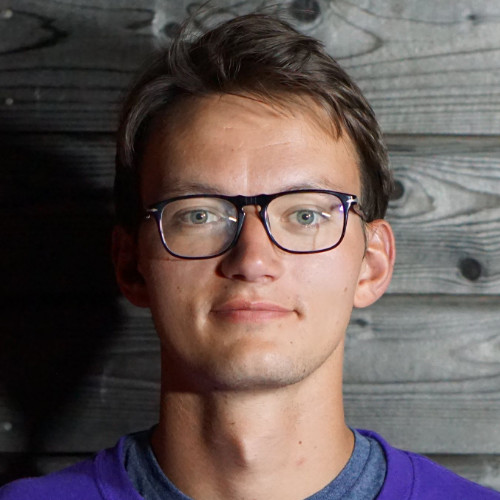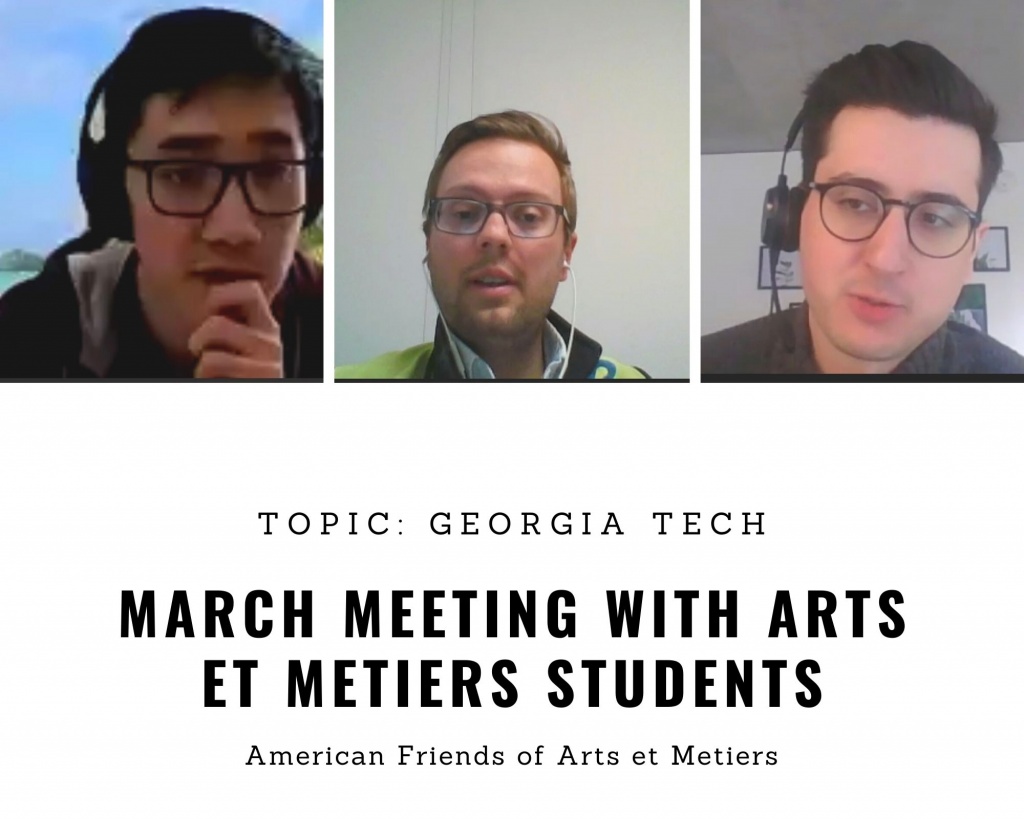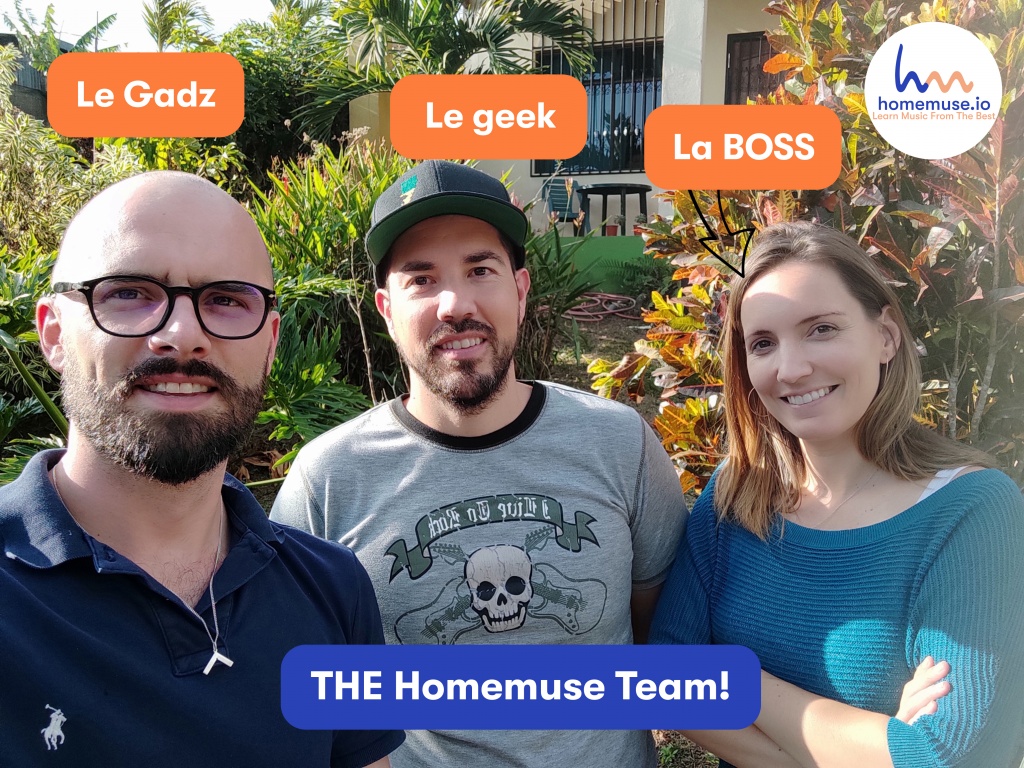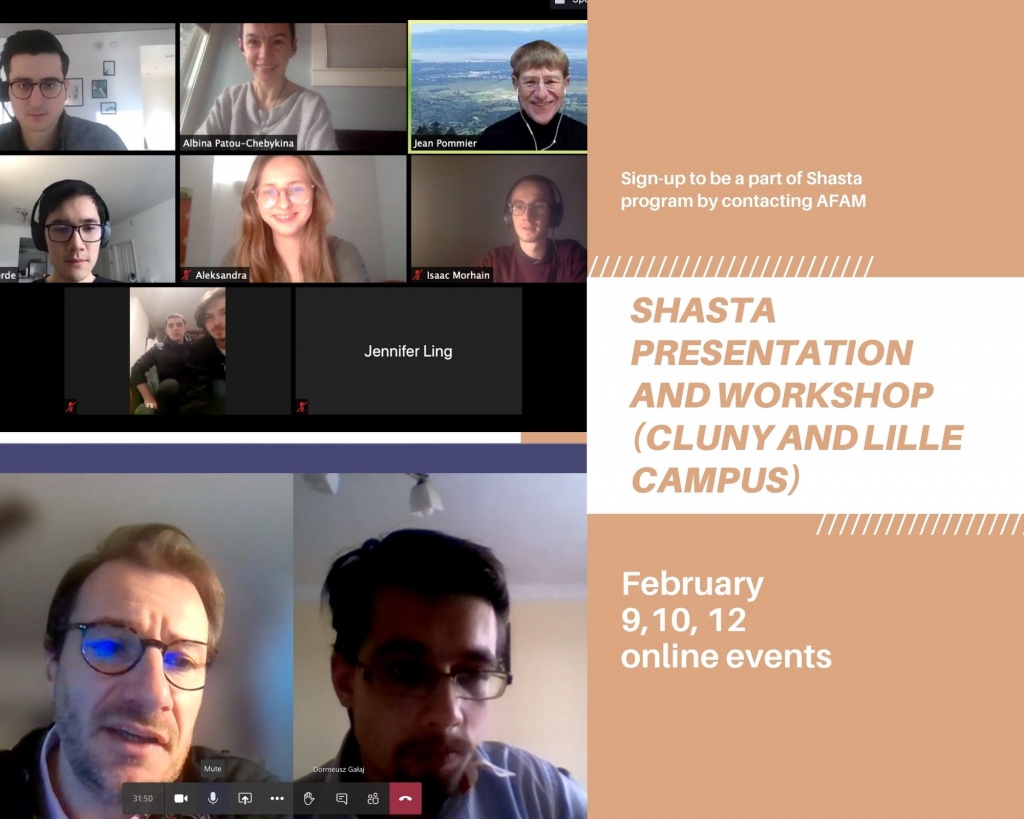- Details
Traditionally, aerospace industry interests a lot of Arts et Metiers students. To know more about gadz working in the aerospace sector in the US, we decided to launch “Ad astra: dreams and reality of aerospace engineering”.
Our first interview in this series is with Jean-Christophe Boulon (Me 213)
AFAM: Hello, Jean-Christophe, and thank you for this interview. Your Linkedin profile says that you are in charge of Special projects at Safran Cabin in California.
Please could you tell us more about your job? What do you do every day at work?
Jean-Christophe: Hello and thanks for having me!
The nature of my job is to deliver projects for the VP of Engineering. Our company scaled up from Zodiac Aerospace to Safran, so there are many areas where processes and tools are missing. Lately, I built a tool that lets you track automatically the cost of a physical product directly from the 3D model. The tool merges different cost databases and renders it visually, for the engineers to the CEO.
Because we built a department around it, every day I work I try to build metrics to manage the work inflow and processes.
These days, I spend 20% of my time in meetings to follow the different running programs. Another 20% is spent on responding to emails (people needing training or support).
.
AFAM: How did you start your career in aerospace engineering? Tell us about your starting point.
Jean-Christophe: In 2017 I was doing research for the Department of Energy in Chicago. My visa time was up, and I found a VIE opportunity at Safran in California. At first the tasks were broad, and then I focused on process engineering and delivering high-value projects. I was lucky enough to work under a very dynamic boss who likes to innovate, and trusts his employees.
I think that if you like to bring value and you find this type of boss, it will go a long way to bringing you work satisfaction.
AFAM: What are the challenges of your job? What do you like most about your job?
Jean-Christophe: Creating a department means building something new, so I cannot benefit from proper mentorship. I also have to fight for resources. Lastly, like most big companies, there is sometimes a lot of work needed to gather trivial information. So proper networking within the company is paramount.
Overall, it's very intense. But as long as I deliver, I can direct my work independently, which gives a great sense of ownership.
AFAM: is there anything you’d like to say about the aerospace industry today: any challenges the industry faces, what are the best professional opportunities today in aerospace you can see and tell us about?
Jean-Christophe: The aerospace industry is diverse : some sectors are very dynamic ( urban mobility, defense..). The aeronautical sector is going through a slower pace, but business is still there.
There are opportunities everywhere: in smaller and newer companies to build the next best technology (A3, Boom, KittyHawk, Joby..), or in major companies to be part of something global (Boeing, Airbus, Safran..). There is a need for digitalization in most of these companies, and a can-do attitude will bring you a long way, no matter what you do. If you bring value and make your job better, success will come naturally.
AFAM: How being a gadzarts helped you in your career?
Jean-Christophe: I got my first internship at Safran Landing Systems thanks to the alumni phone book. I called a director, and he helped me right away.
In my last year at school, I was lucky enough to go study in Brazil with the school, and speaking Portuguese today is a valuable asset. Lastly, I know I can always count on the mentorship of elder gadzarts, while I try to help younger ones. We're the professional equivalent of Elton John's circle of life.
AFAM: Any pieces of advice for our students willing to start their careers in the aerospace industry and for those who are looking for internships?
Jean-Christophe:
Quality over quantity. Focus on a couple of companies, identify roles you are suited for, and try to reach out to connections in this company. There is a lot of competition in the US, never be afraid to reach out. Be organized and courageous, as it could be a lengthy process. But immensely rewarding.

Photo: courtesy of Jean-Christophe Boulon
Other interviews of "Ad astra: dreams and reality of aerospace engineering" series:
Interview with Laurène Rokvam (Bo 210)
Interview with Corentin Lazarus (Me 209)
- Details
Online meetings with Arts et Metiers students became a good tradition in these unprecedented times. On March 26th Arts et Metiers students met our alumni Nicolas Horde, Corentin Lazarus, Bastien Raimbault and AFAM community manager Albina Patou-Chebykina to ask questions about AFAM, Shasta and Georgia Tech where some students would like to study next year.
During this 1-hour meeting our alumni could talk about their experience in the United States encouraging students to apply to Georgia Tech or to look for an internship in the US.

- Details
We decided to launch this new series as service sector is the one who suffered the most during the COVID-19 crisis. But at the same time while some doors are closed and some companies sink into pandemic bankruptcy, the service sector shows its flexibility and high creativity by opening new doors and looking for fresh opportunities for growth and development.
Our first interview in this new series is with Damien Blanc ( Ai 208), project engineer at homemuse.io
AFAM: Hello Damien. You are a project engineer at a new online platform homemuse.io
Please tell us more about your company and your job.
Damien: Homemuse.io is a brand new online platform that offers a wide selection of professional music teachers for more than 18 different instruments, for at-home or online lessons. The idea was to create a platform where students could focus on their music training and leave the administrative tasks to us. Everything is integrated on the website: zoom interface, schedule, payment 100% secured, dashboard to track progress and exchange with your teacher. So far, we’ve got 100% positive feedback from both our customers and the teachers.
To keep our students motivated, we also organize on a monthly basis, online masterclasses hosting one our teacher, accessible from all around the world for everyone, musicians or not.
On a daily basis as a project engineer I deal with several subject which are completely new to me:
- Growth strategy;
- SEO (the practice of increasing the quantity and quality of traffic to a website) which is the key to success for an online platform;
- Marketing: advertisement, making offers, social media's strategy, etc)
- Client relationship (managing request, quotes, feedback, technical issues, etc);
- Managing teachers (recruitment, assistance, masterclass organization, etc).
AFAM: You have been working for Total in Africa and South America for 7 years. How come you decided to work for homemuse.io after all these years at Total?
Damien: I was a field drilling/completion engineer for 7 years in Total which offered me the opportunity to discover the world and work on some nice international projects : development of shale gas in Argentina for 3 years, exploration wells in the Sahara desert for 2 years, several inspection or technical missions in Denmark, Bolivia, Scotland.
Field engineers have to work on site, which are usually remote, far from any civilization (on deserts or offshore), which makes life a bit hard sometimes not to mention the 4 weeks on/4 weeks off rotation system which seems nice on paper but doesn’t allow to have a very stable life.
With Covid-19, the work conditions, which were already not ideal, started to worsen. Companies try sometimes to take advantage of a crisis to reduce benefits, career advancement and I eventually felt under-used. In this kind of big industry it’s hard to make a change and the inertia of decision-making started to wear myself out. I felt that it was time for me to move on to something more exciting.
Example of a drilling site in Sahara desert (photo: courtesy of Damien)
AFAM: What do you like the most in your job for homemuse.io?
Damien: This job is a real breath of fresh air, I had never worked before in a start-up environment (we are a small team of 3), and it is so fulfilling and exciting. What amazes me the most is that you can almost immediately see the effect of your work and its impact on your business. That is what missed me the most in my previous job where the inertia of big companies have the tendency to kill initiative and motivation. I learn so many new skills everyday, you need to multitask and react fast. I think the Arts et Métiers have taught me well to be multifaceted and adaptable.
AFAM: What do you think about the future of services and online platforms like homemuse.io in the aftermath of covid-19?
Damien : At first the idea was to connect students to music teachers locally.
But with COVID-19 the business was jeopardized. It gave us the opportunity to innovate and come with a complete integrated online solution where you can enjoy your music lesson in the comfort of your home. Now, most of our clients go for online lessons with their teachers and so far all our students are really satisfied with the solution we put in place. At the end of the day, COVID has been a great opportunity for us: there are no problems, only solutions.
AFAM: How did Arts et Métiers prepare you for your current work? How does being a Gadz’Arts help you in your everyday tasks at work?
Damien: Arts et Métiers is definitely the school where you can learn how to manage a project.
The disciplines taught are so different that it opens your mind and really gives you the capacity to handle any kind of technical subject. It widens the boundaries of your comfort zone. It becomes wider and it gives you the opportunity to think “out of the box”.
The good thing with Gadz’Arts network is that you can always find someone working in the same area and rely on their expertise to get the good tips, it helps a lot!
AFAM: Thank you, Damien for you time, this interesting conversation!
Damien: I’d like to add that we offer a special discount of 30% off on the first music lesson to AFAM blog readers by using the code GADZ21 on our website (homemuse.io/teachers)
AFAM: thank you for this special offer ! We hope that gadzarts living in the US, members of our community, will enjoy it.

- Details
“Why remote internships could be a real opportunity” - with Xavier Wartelle, Co-founder and CEO of Avatar Medical, Founding partner at big bang factory and AFAM CEO
Hello, Xavier, and thank you for your time! We would like to ask you a few questions about a remote internship.
AFAM: As far as I understand, you hired several interns who work remotely. How many remote interns do you have? What kind of tasks are they carrying out?
Xavier: At big bang factory, we currently work with Vipra and Suhail, two interns located in India (technically, we compensate them as consultants). They help us with marketing and business development, and we are very happy to have them on board. Actually, Vipra is also working for AVATAR MEDICAL and she did an outstanding job on the web site!
AFAM: Did you decide to hire remote interns because of Covid19 or will you be hiring remote interns in the future?
Xavier: We don’t have a company office at big bang factory. From day one, we have developed a remote corporate culture and an organization that enables us to work from anywhere as a team. and that proves to be could be very efficient! For instance, we are pretty good at using collaborative software tools. We have always been very efficient. In fact, Covid-19 didn’t make any difference for us and the remote interns fit perfectly in our organization.
AFAM: What do you find positive and what do you find challenging about having a remote intern?
Xavier: Remote internship can be a very positive experience for both the company and the interns. Although Vipra and Suhail are based in India, they can still participate in the vibrant life of dynamic French startups expanding in the US. For big bang factory, this is an opportunity to work with talented individuals with different backgrounds, and cultures.
The main challenge is to keep them included and motivated despite the distance and time difference. This requires to hire autonomous interns that don’t need constant supervision and encouragement. In terms of management, we need to precisely define tasks and responsibility and organize daily calls with them, even short.
AFAM: Do you think you will hire another remote intern in 2021 or 2022? Or will you better opt for an in-person internship program?
Xavier: We cannot have in-person interns and yes, we will hire other remote interns.
Thank you for sharing!
As a reminder, Shasta internship program is open to all Arts et Metiers students! Contact us to be a part of it!
Illustration from https://teanabroad.org

- Details
On February 8-12 Lille campus organized International Week to allow Arts et Metiers students to learn more about international experiences from alumni and students.
This week was full of interesting online events, including discussions, round tables and workshops.
AFAM participated in three different events:
1) On Tuesday February 9th, AFAM Shasta committee members including Jean Pommier, Corentin Lazarus, Nicolas Horde and AFAM community manager Albina Patou-Chebykina participated in AFAM and Shasta presentation organized for Cluny campus students
2) On Wednesday AFAM operations committee member and DG Amériques Patrice Brossard shared his thoughts on his American journey and informed Lille students about AFAM and the Shasta program
3) On Friday Albina Patou and Patrice Brossard shared with students some tips and tricks on successful resume and practiced resume writing
Besides, on Thursday NYC-based alumnus Julien Sion shared his professional experience with the students attending the conference.
AFAM will be happy to participate in the future International Week next year!
To join the Shasta program, Arts et Metiers students can contact AFAM


 BLOG /
BLOG /  CALENDAR /
CALENDAR /  DONATIONS /
DONATIONS /  MENTORS /
MENTORS /